Portland’s City Council rejected a proposal to permit public camping through April, voting it down early Tuesday morning after listening to four hours of passionate public comment and then discussing the issue for another hour.
Order 68, put forth by Councilors Roberto Rodriguez and Anna Trevorrow, would have effectively ended encampment sweeps during the winter. The practice has drawn the ire of activists, who say they are inhumane and traumatizing. A number of city councilors have spoken out against the sweeps in the past, including April Fournier and Victoria Pelletier.
It was a long and emotional night, ending around 1:30 a.m. when the order failed on a 6-3 vote with Pelletier, Rodriguez and Trevorrow voting for passage. Mayor Kate Snyder and Councilors Fournier, Pious Ali, Mark Dion, Regina Phillips and Andrew Zarro voted against the order.
One person was removed from chambers after attempting to hold what appeared to be a sit-in protest.
The council then voted 6-3 along the same lines to move the proposal to the Health and Human Services Committee for further consideration.
The number of tents in several encampments around the city has been increasing, despite efforts to move people into shelters. The city and state have been clearing homeless encampments for more than a year since large-scale camps made their way to Portland.
The city’s largest encampment at Marginal Way was cleared a few weeks ago, but an encampment beneath the Casco Bay Bridge has grown. The vote came just a week after the council voted to temporarily add 50 beds to the Homeless Services Center in Riverton in an effort to get more people into shelter before the winter.
MARCHERS RALLY BEFORE MEETING
Since the proposal was announced, public debate on the issue has been intense. Two rallies were planned in the hours before Monday’s council meeting began, each marching toward City Hall just before 5 p.m.
“Stop the sweeps,” one group chanted, wielding handmade signs as they marched from the Equality Community Center on Casco Street.

Jess Falero, center, and Christina Iris lead a group in support of Order 68 as they march to City Hall before the Portland City Council meeting to discuss the issue Monday. Brianna Soukup/Staff Photographer
The group’s organizer, Jess Falero, who was homeless for eight years, spoke to the media from the steps of City Hall some headed inside to grab seats.
“We can’t work towards solutions to homelessness while we’re actively harming unhoused residents,” Falero said.
As they spoke, another group led by Portland Voices marched toward the building chanting, “keep people safe, bring them inside.” They held blue signs, with the words “No Citywide Encampments” printed on them in white.
Andrew Bossie, 40, said he helped organize the march from Lincoln Park because he is concerned about the conditions homeless people are living in and doesn’t believe the proposal is the way to address the problem.
“They’re living in conditions that no human should live in, we need to make sure these people have access to services, but more importantly they need to be housed,” he said. “Order 68 is a red herring for what we really need to do.”

A group opposing Order 68, a proposal to allow encampments in certain public areas of Portland through April, gathers near Franklin Park before heading to City Hall for the Portland City Council meeting Monday. Brianna Soukup/Staff Photographer
As the sun went down, the chanting outside City Hall continued. Two women huddled close together and stood facing the group.
“Somebody’s hurting unhoused people/it’s gone on far too long/we won’t be silent anymore,” they sang.
As the 5 p.m. meeting start grew nearer, hundreds of people shuffled into City Hall, filling council chambers and multiple overflow rooms throughout the building.
PASSION FROM THE COMMUNITY
The scene inside council chambers was no less passionate. As people waited to discuss Order 68, many others had gathered to speak about a rezoning proposal for a property in East Deering.
Discussion on Rodriguez’ and Trevorrow’s proposal didn’t begin until 8 p.m. when City Manager Danielle West kicked it off by reiterating that the head of every major city department sent a letter to the council opposing the idea.
At least 60 people –business owners, social workers, teachers, medical workers, formerly homeless people, landlords, lawyers, those living near the encampments, addiction councilors – commented on the order over nearly four hours. Some cried at the mic.
Leo Hilton spoke in support of the proposal. He said he lives near Harbor View Memorial Park and that he appreciates having the homeless community nearby.
“If you believe there needs to be any more incentive than sleeping outside in a tent to motivate you to find housing, I think you’re deluding yourself,” Hilton said.

People line up to wait for their 3 minutes to speak during the public comment section on Order 68 at the City Council meeting Monday night. At least 60 people commented on the proposal to allow encampments in certain public areas of Portland through April. Brianna Soukup/Staff Photographer
He went on to say he is concerned that even with the forthcoming opening of the Riverside Shelter, which will open up about 120 beds – on top of the 50 additional beds the council voted to add to the shelter last week – there will not be enough available beds for the city’s homeless. According to the city’s homelessness tracker there are 230 tents in the city as of Nov. 20.
“So, what happens to the other people,” Hilton posed to the council. “Where do they go? Without community people will die.”
Dana Staling, an outreach worker at Milestone, shared that concern.
“If everybody in tents right now said ‘I want to go somewhere,’ there are no beds. Milestone is full all the time, Elena’s Way is full. There is no large capacity of beds at the city shelter right now, so something we can do right now to stop harm is to stop the sweeps,” Staling said.
She said that in her experience, sweeps make it more difficult for outreach workers to reach their clients because they become dispersed, which she said is detrimental to them finding housing.
Allison Hawkes said she also lives near Harbor View Memorial Park, but unlike Hilton, she doesn’t feel safe there.
“There are needles all over our neighborhood now,” Hawkes said, referencing a photo she sent to the council. “In the background of that photo on one side is a playground, and on the other side is a kids art camp.”
Hawkes, like many other people on Monday evening, recited a haiku to the council. “Safe expectations/let society flourish/stop public camping,” she read.

Portland City Manager Danielle West listens during the public comment section on a proposal to allow encampments in Portland through April, at the Portland City Council meeting on Monday. Brianna Soukup/Staff Photographer
The conflicts between wanting to support the homeless community and maintaining safety were clear.
“I’m not in favor of sweeps, I think they are inhumane, but I’m also not in favor of allowing encampments to spread throughout the city,” Paula Mahoney, who owns a business on Commercial Street said. She hopes the city can come up with a more moderate solution.
“Is this really the best that the city can do? It’s either sweeps or widespread encampments? Isn’t there something else? Widespread encampments means you’re condemning these people to terrible safety issues,” she said.
When the council finally reached the end of the line around midnight, two commenters with opposing views engaged in a standoff over who would ultimately have the final public comment of the night. They both refused to go to the mic until Snyder said she would close public comment if nobody approached, at which point they ultimately both spoke.
COUNCIL VIEWS
Trevorrow kicked off the council’s discussion at around 12:30 a.m. She spoke about how she saw encampment sweeps fitting into the city’s history.
“Someday future generations are going to look back on these days when our country conducted mass sweeps of homeless people,” Trevorrow said. “Sweeps are a form of violence, I will not have been on the side that condoned it.”
Rodriguez said he felt there was no humane alternative.
“Given the fact that even when 170 beds come online there are still going to be people who are going to remain outdoors through the winter, I just don’t understand what we expect them to do,” he said.
Snyder spoke about the council’s creation of the Encampment Crisis Response Team in May. She said that the council knew all along that moving people indoors would take time.
“Our job is to make sure people are paired with shelter indoors and with the services they need like we all agreed to back in May,” she said. She advocated for focusing on creating more emergency shelter.

Elizabeth Capone-Newton is escorted from council chambers after climbing on the council bench and laying down in front of City Manager Danielle West and Mayor Kate Snyder. Grace Benninghoff/Staff Writer
Dion, who will assume his role as mayor on Dec. 4, said he continues to be in favor of sweeping encampments.
“I subscribe to the idea that they are unsafe from a public health perspective and from a public safety perspective. I really am concerned about the safety of the people in the camps,” he said.
Pelletier, the only councilor who voted with Rodriguez and Trevorrow on their proposal, said she saw it as a humane, temporary solution.
“I don’t want anyone sleeping outside but I also don’t want anyone’s home to be destroyed. How does sweeping encampments get people out of the cold?” she asked, referencing what she saw as a false dichotomy that had emerged during the meeting between stopping the sweeps and getting people into shelter.
“We are advocating for the end of dismantling peoples homes, the only homes they have, the only sense of belonging they have through the winter time,” Pelletier said.
After the council had voted the measure down, Elizabeth Capone-Newton, who spoke earlier during public comment, walked into the dais and approached the council bench. While playing music loudly from her phone as an onlooker in the audience sang along with the tune, she climbed onto the desk where Snyder and City Manager Danielle West sat, and laid down on top of it.
The council paused, seemingly unsure of what to do, before Snyder calmly asked that an officer come help. Capone-Newton was carried off the bench by several officers – including Chief Mark Dubois – but she then laid down in the middle of the dais and refused to move until five officers forcibly carried her from chambers. The council continued the meeting as she was carried out the door.
A spokesman for the department confirmed Tuesday that Capone-Newton was charged with criminal trespass, refusing to submit to arrest and obstructing government administration and was taken to the Cumberland County Jail.
Send questions/comments to the editors.


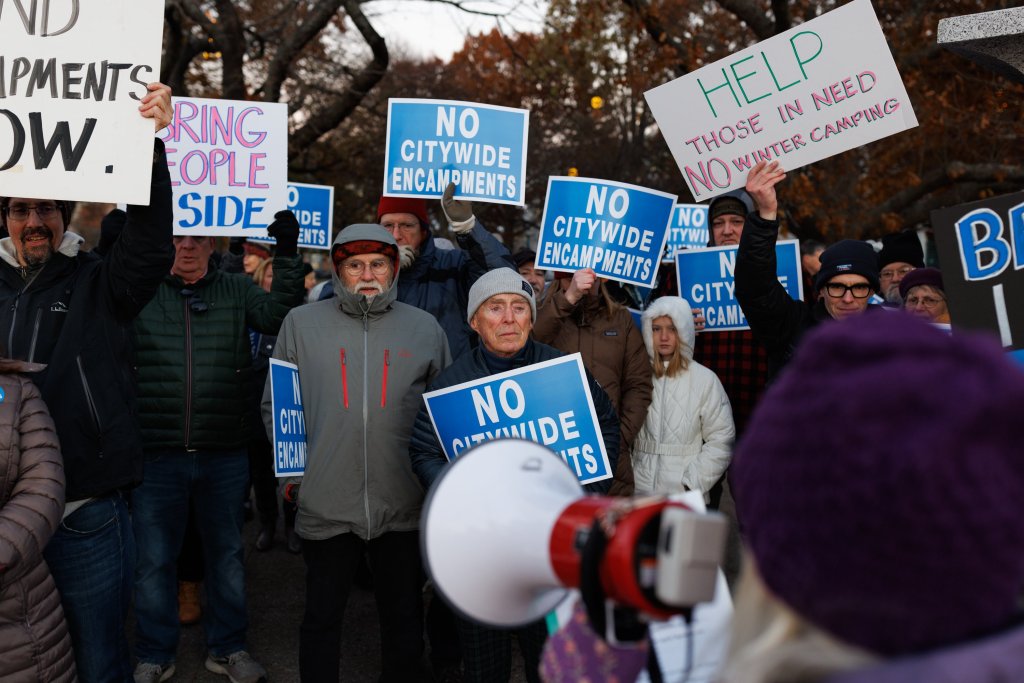
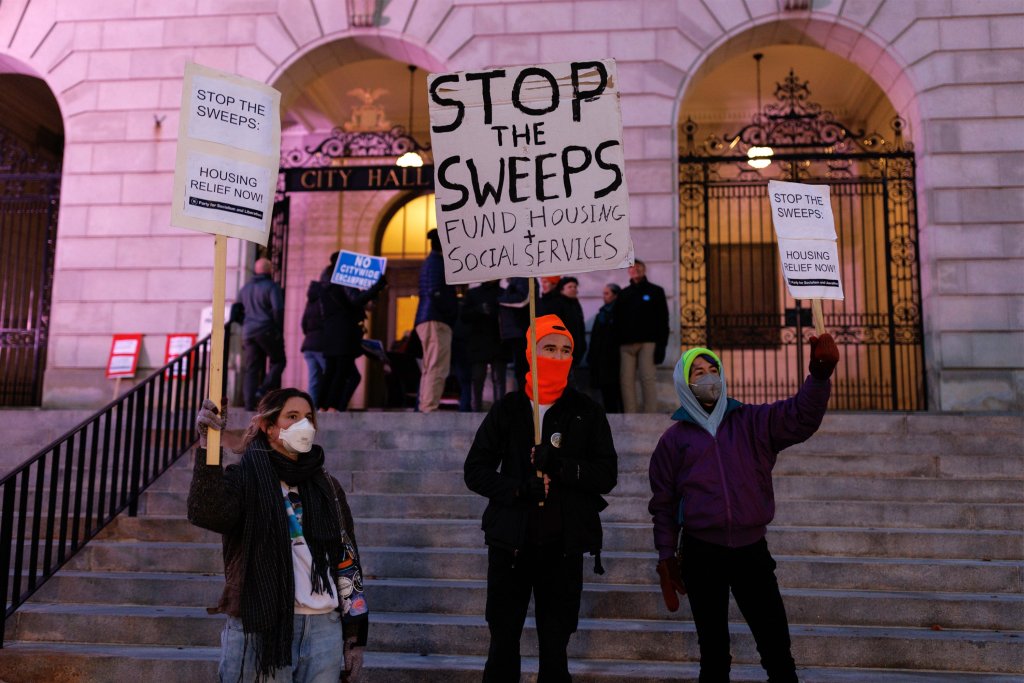
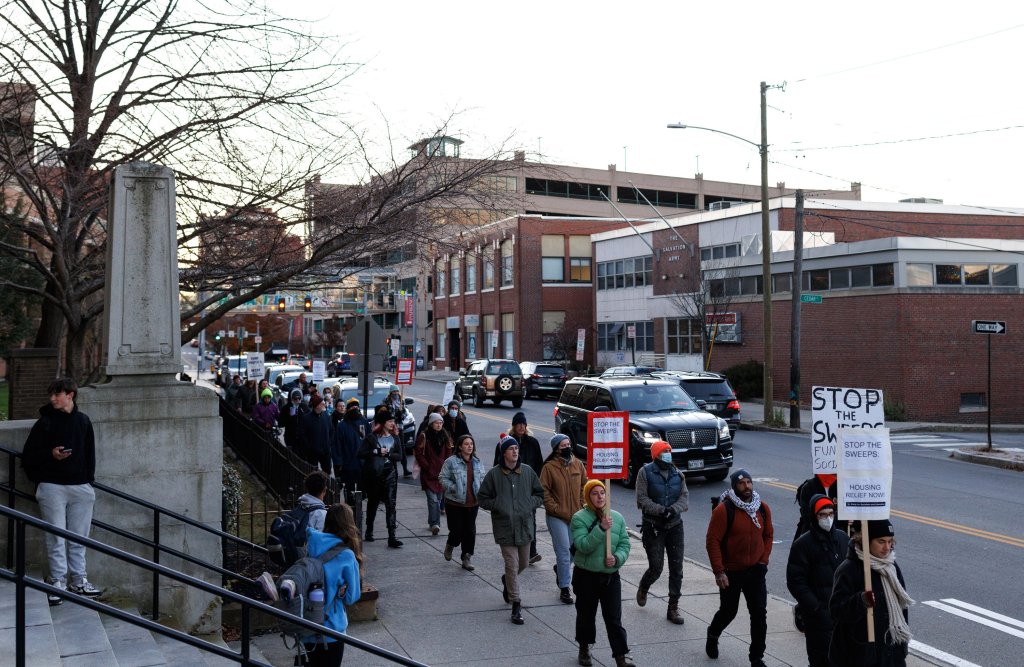
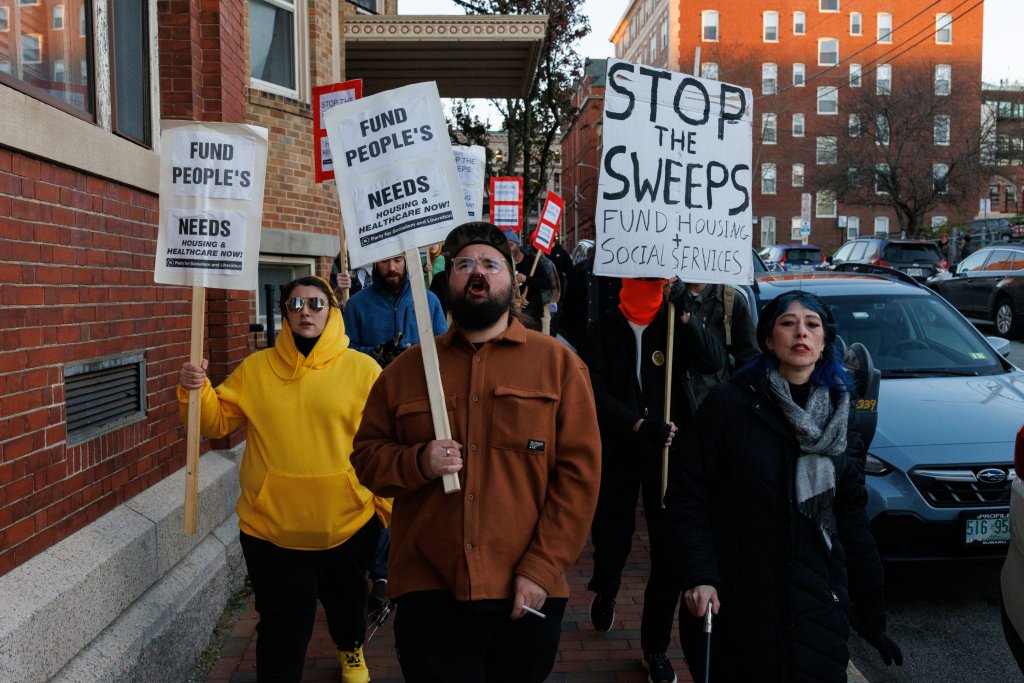
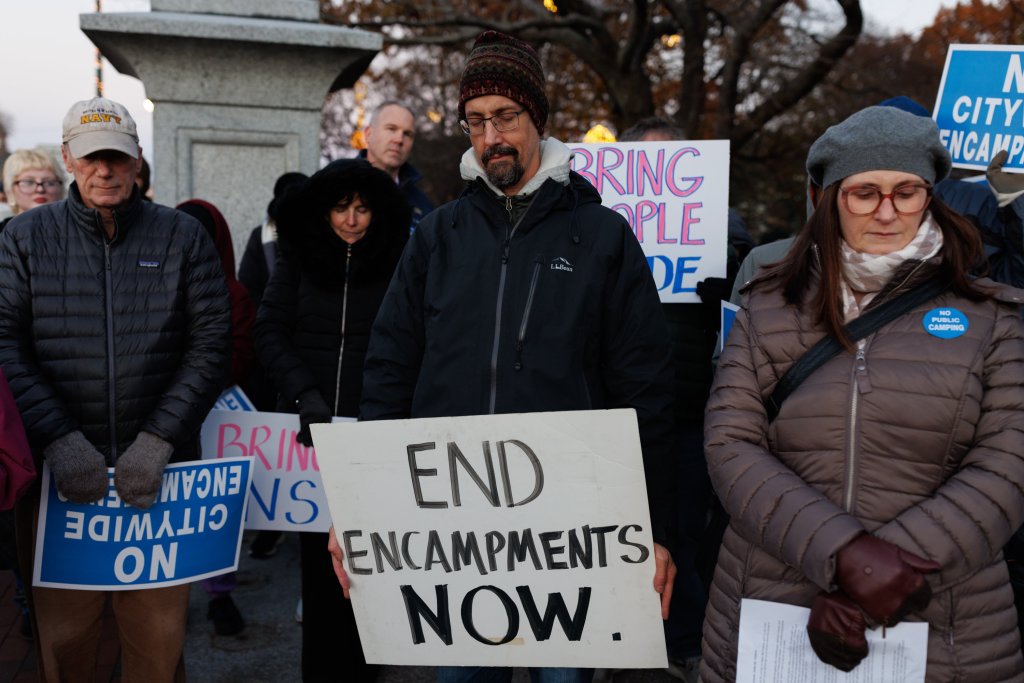
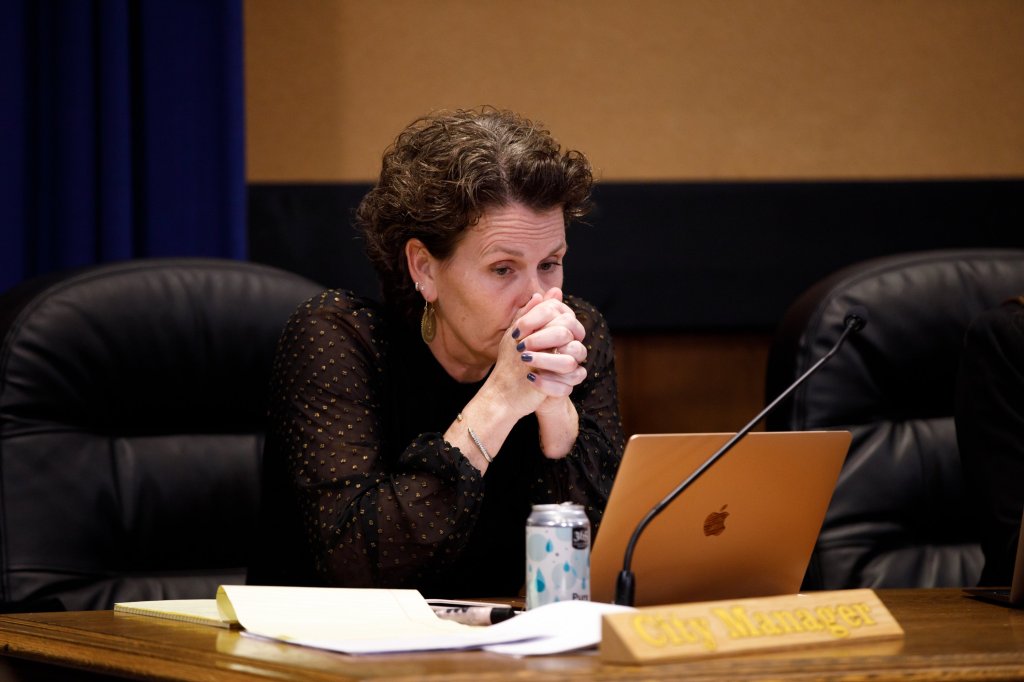
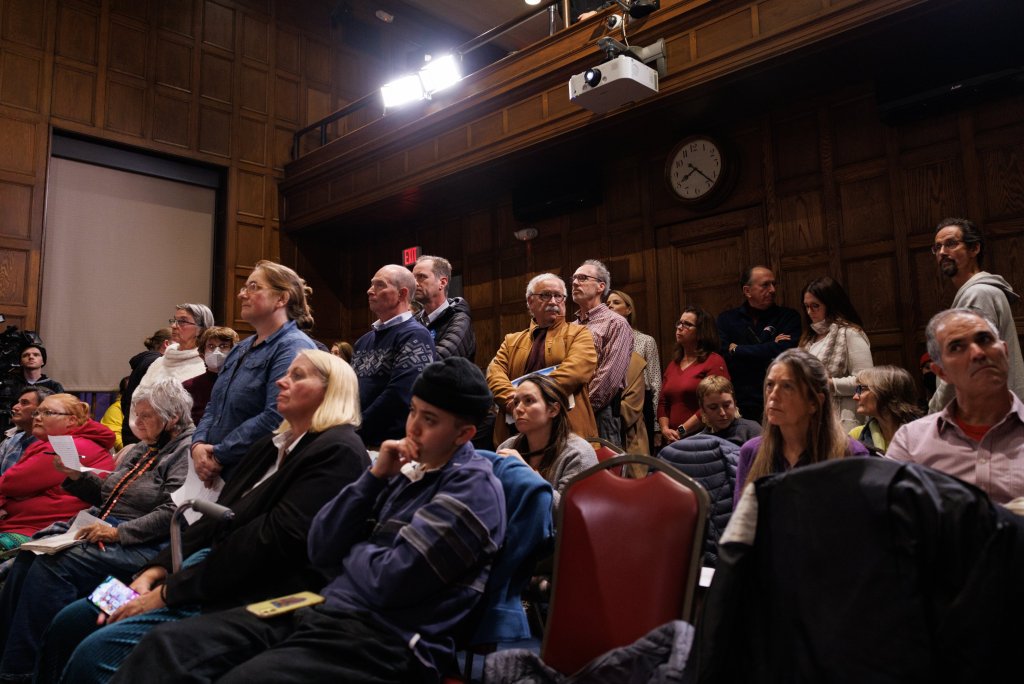
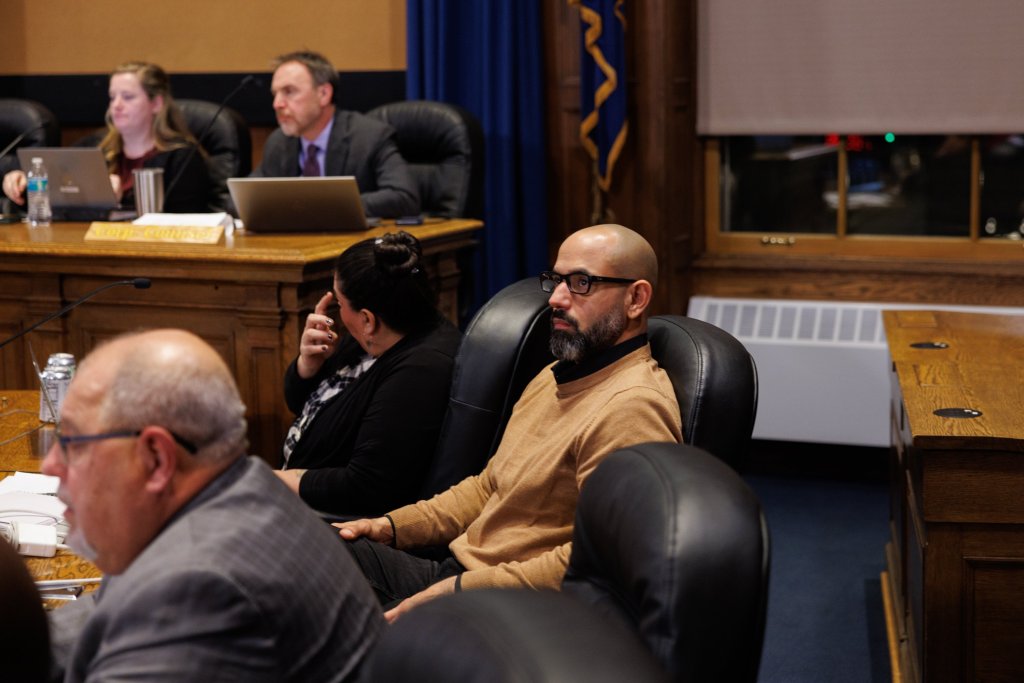
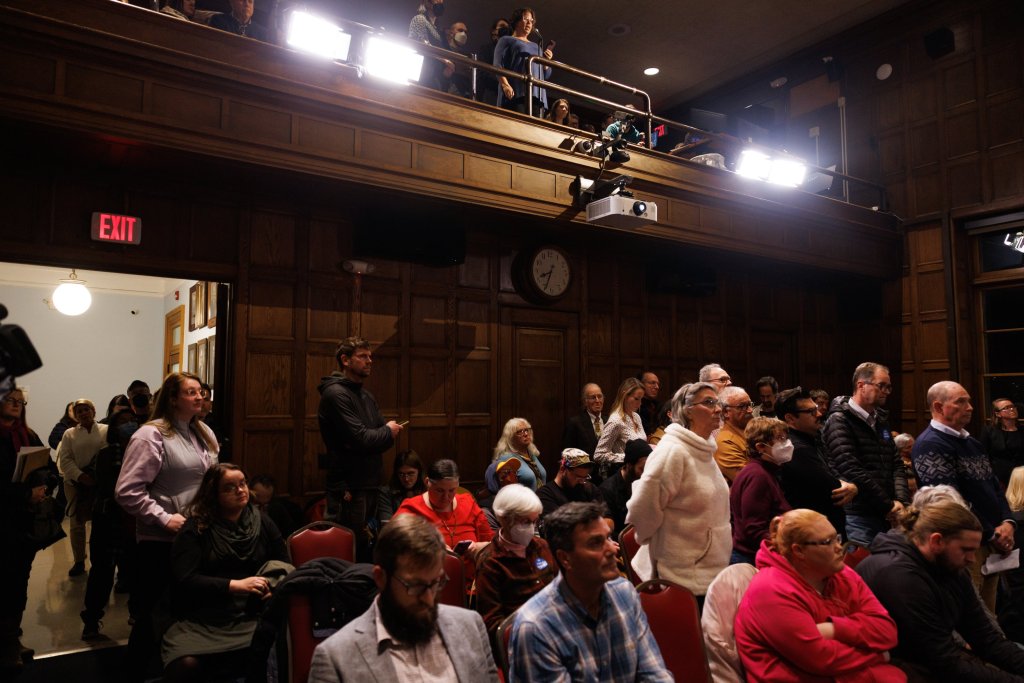
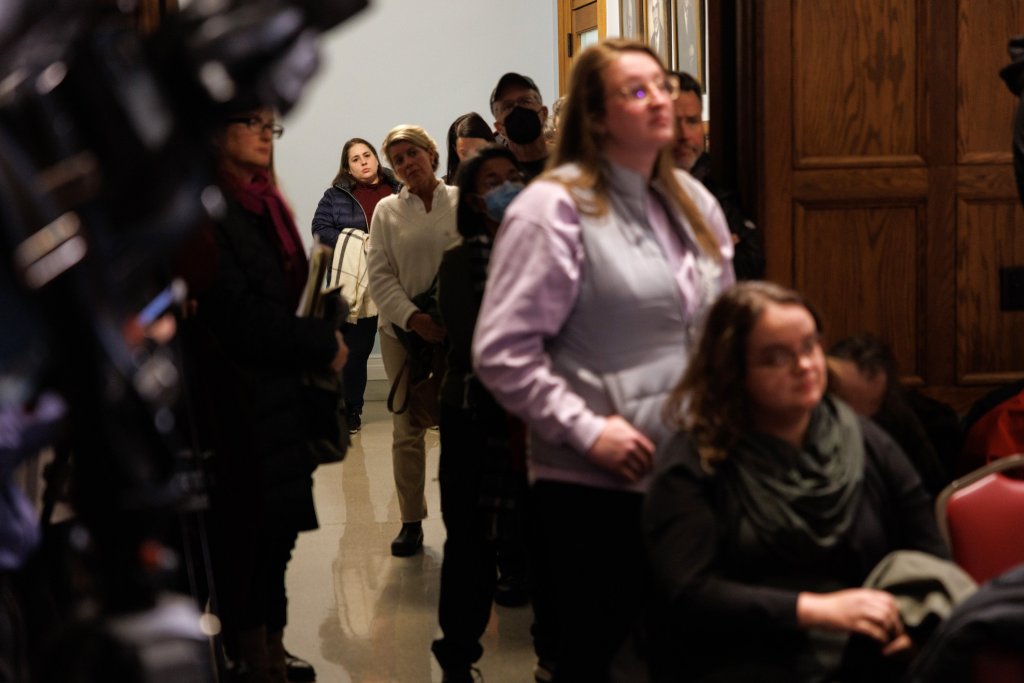
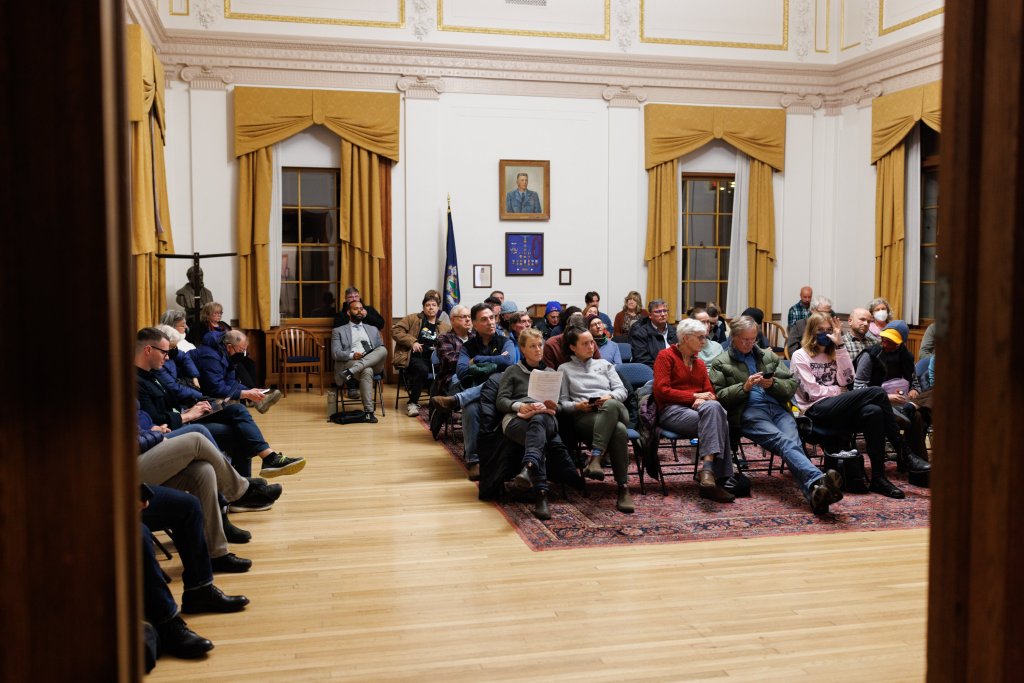
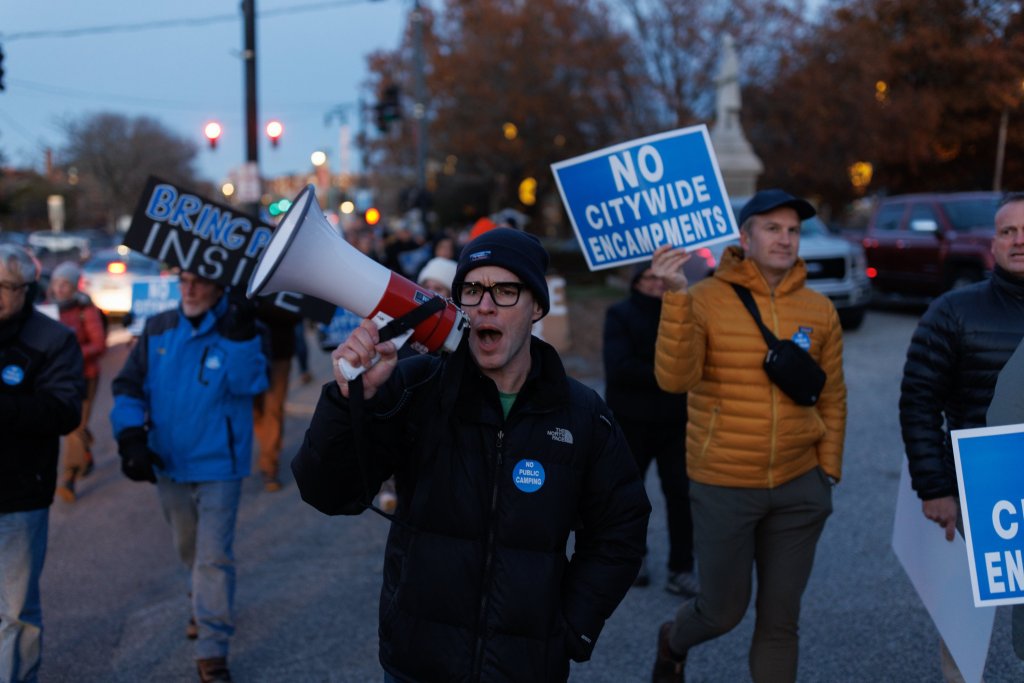
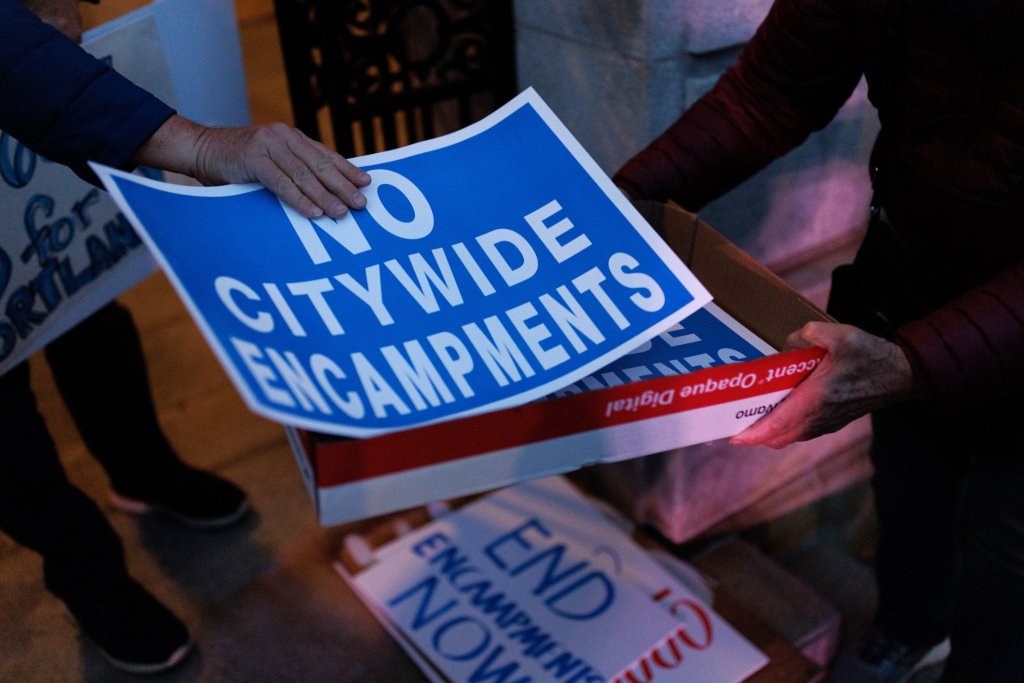
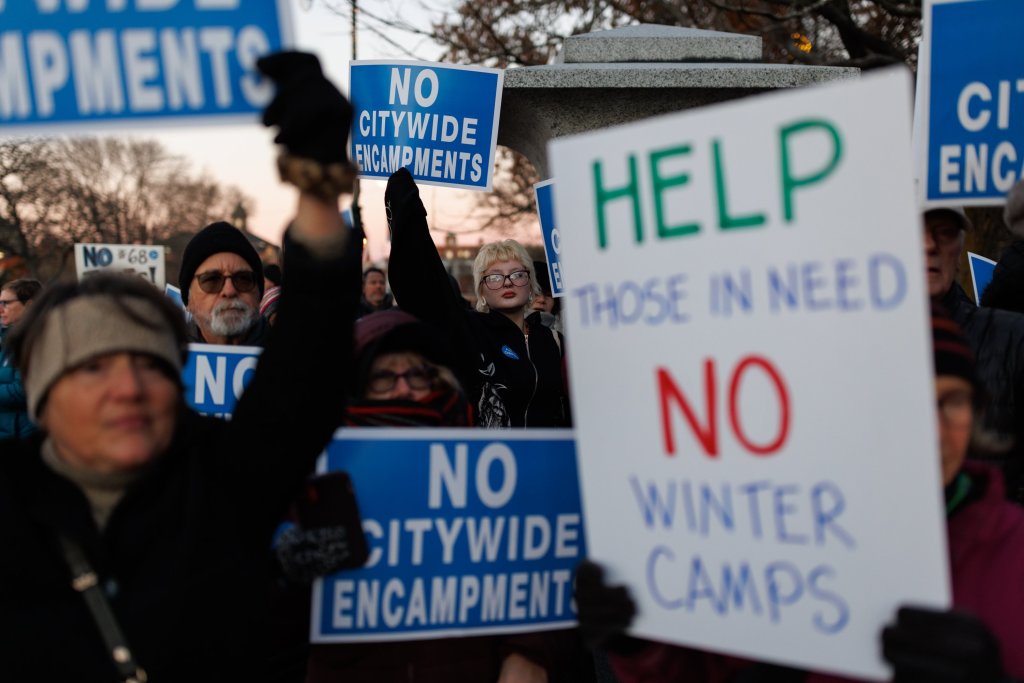
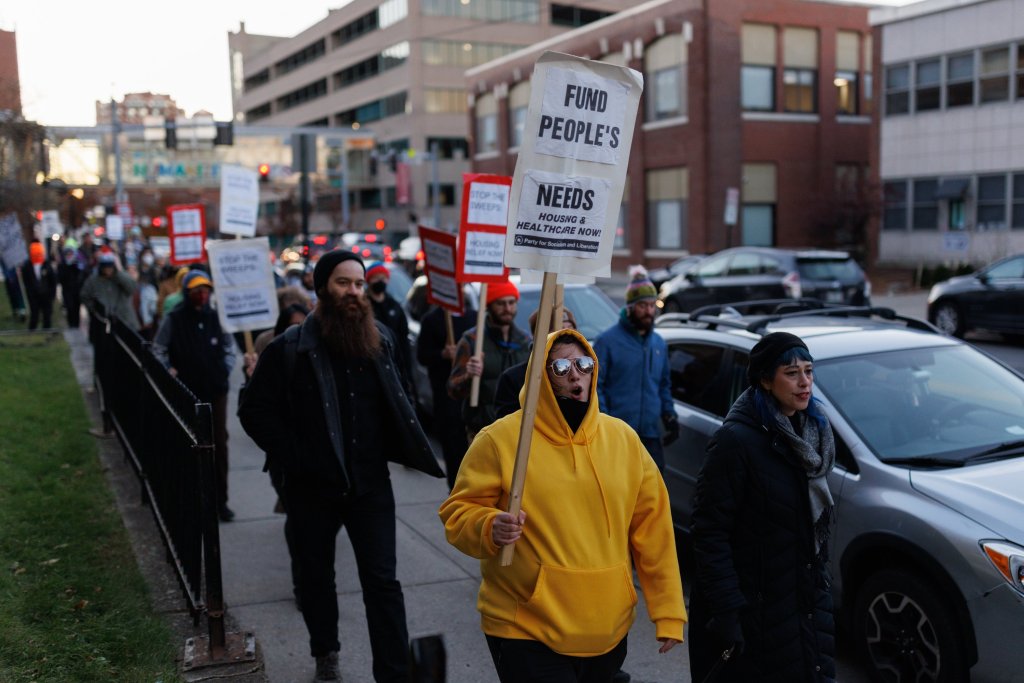
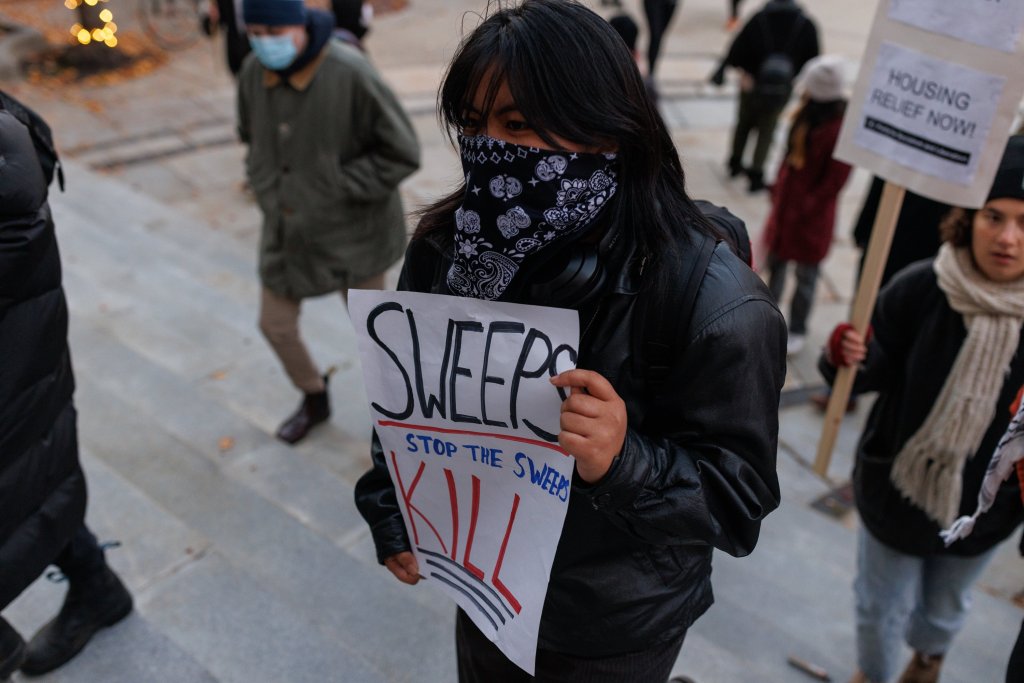
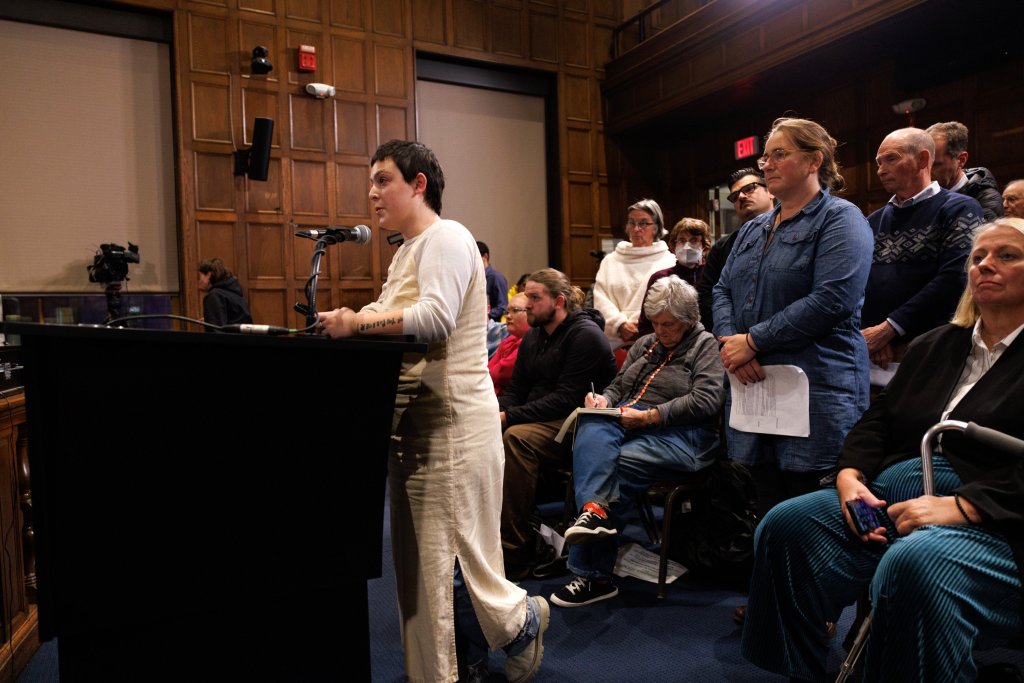

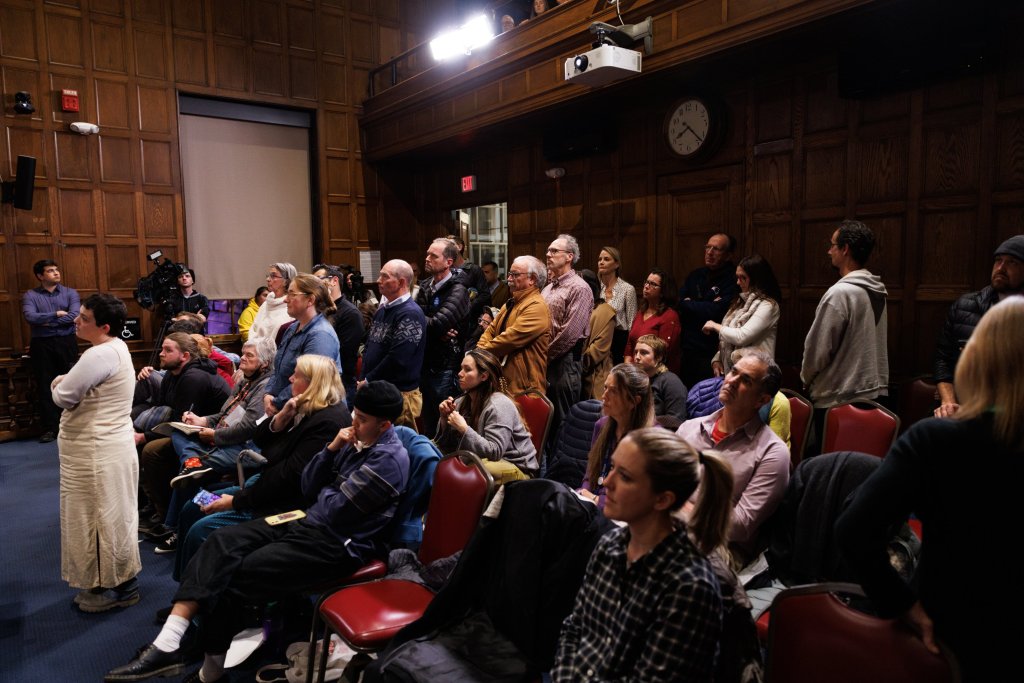
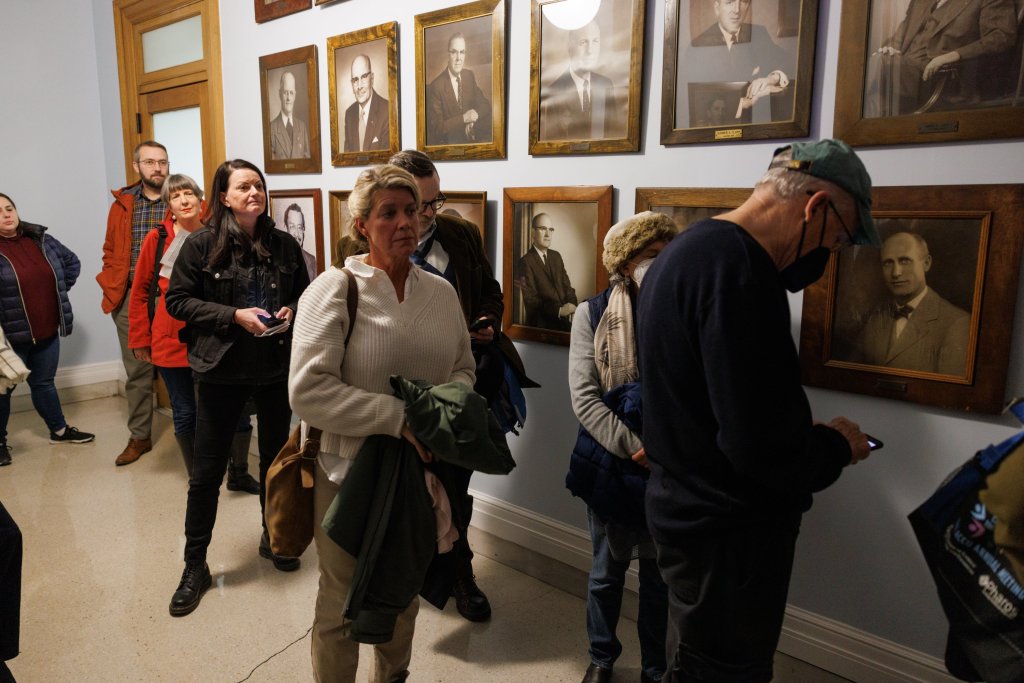
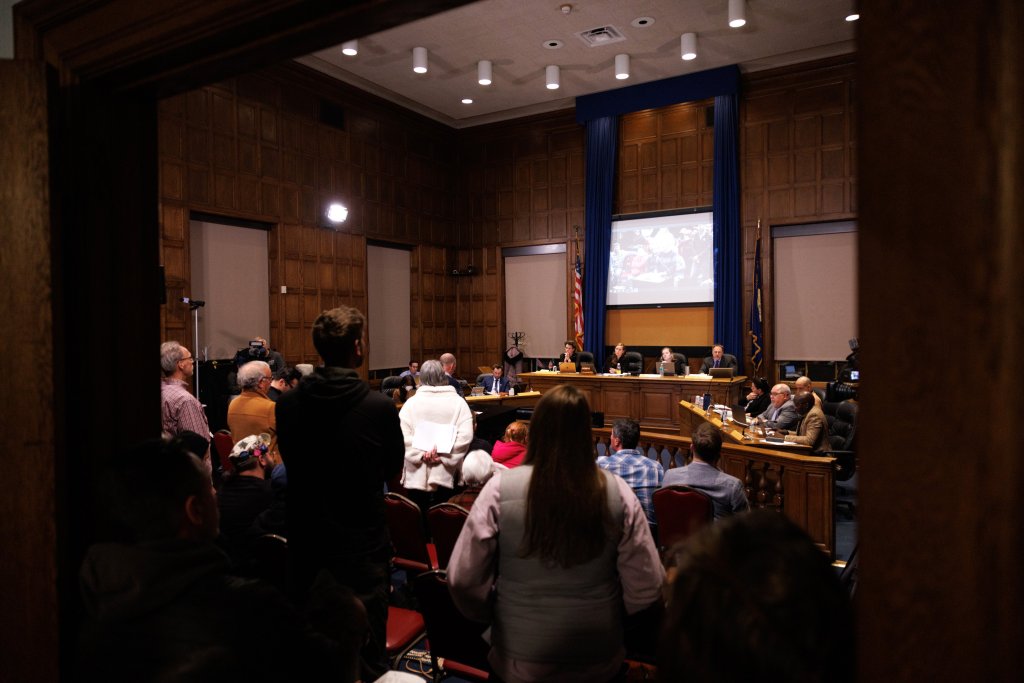
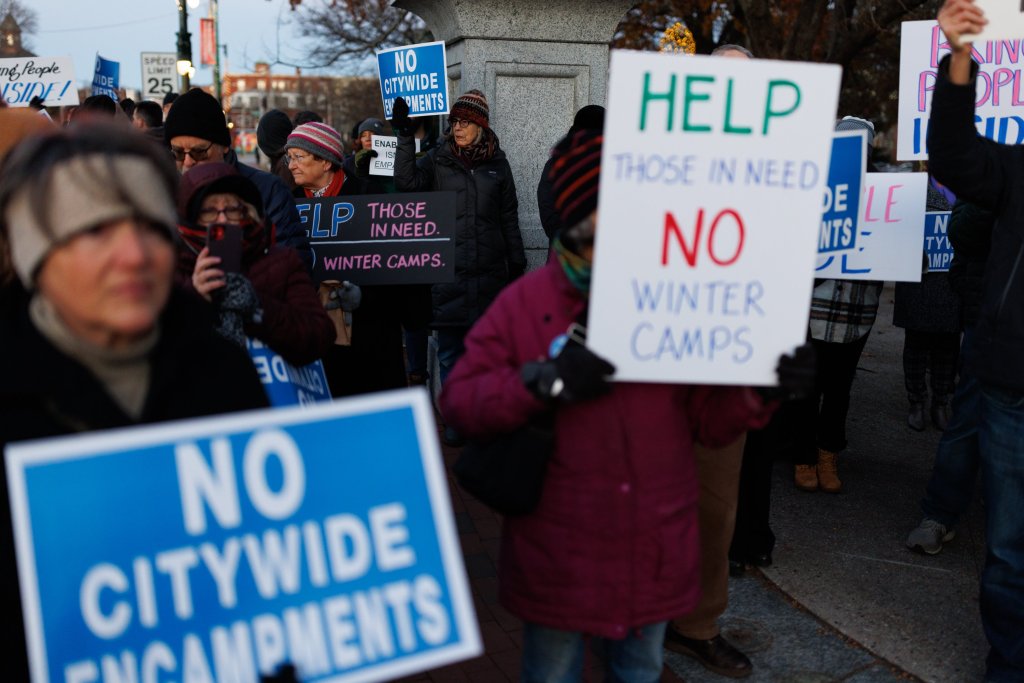
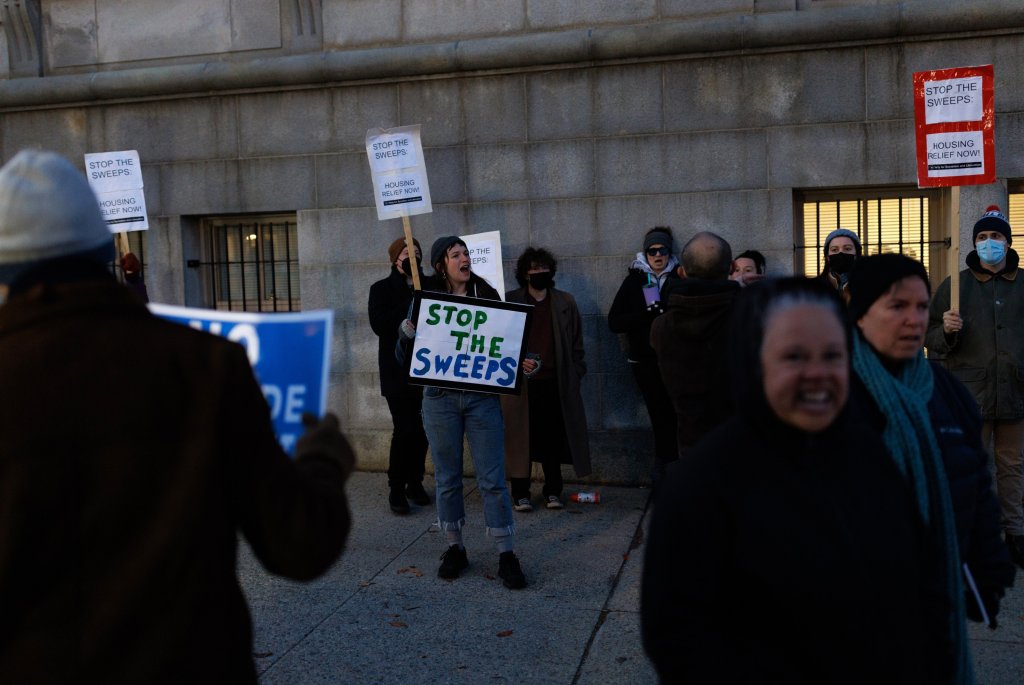
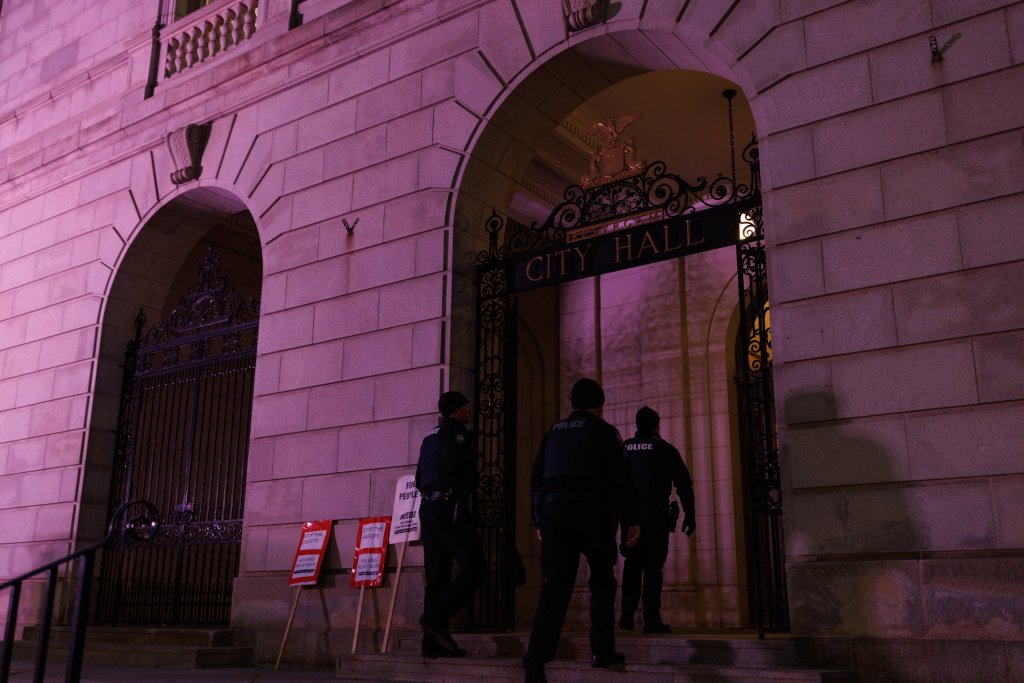
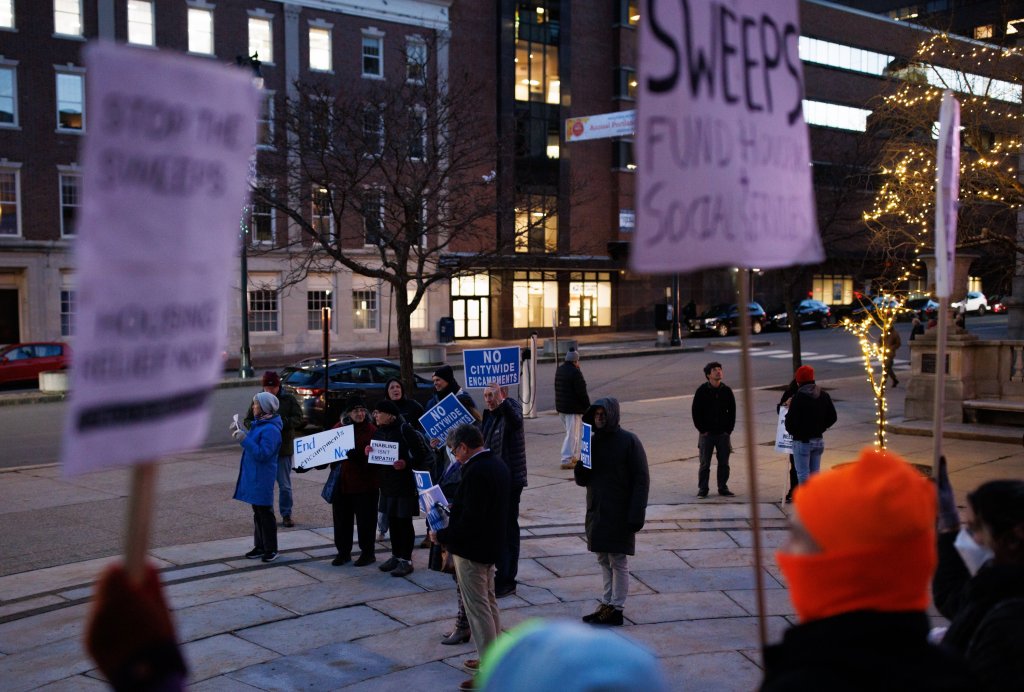
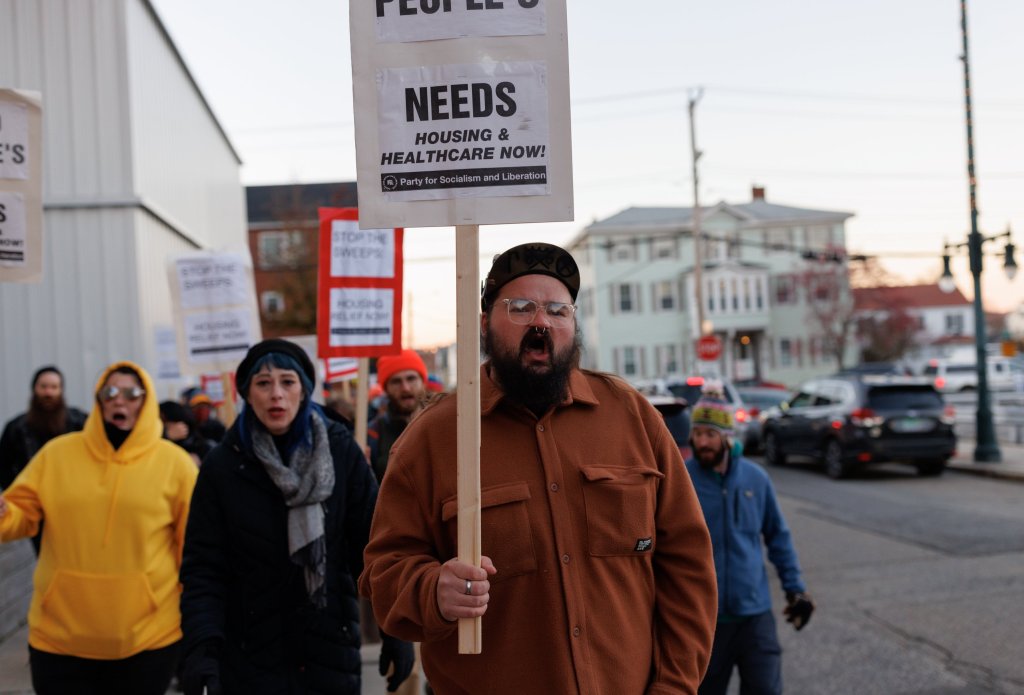
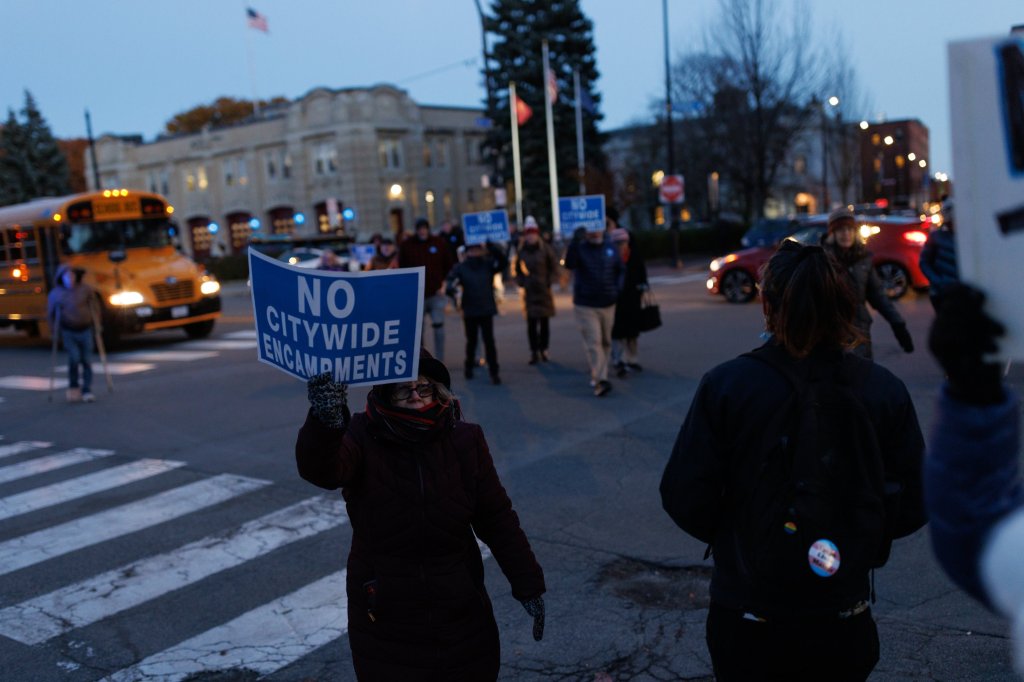
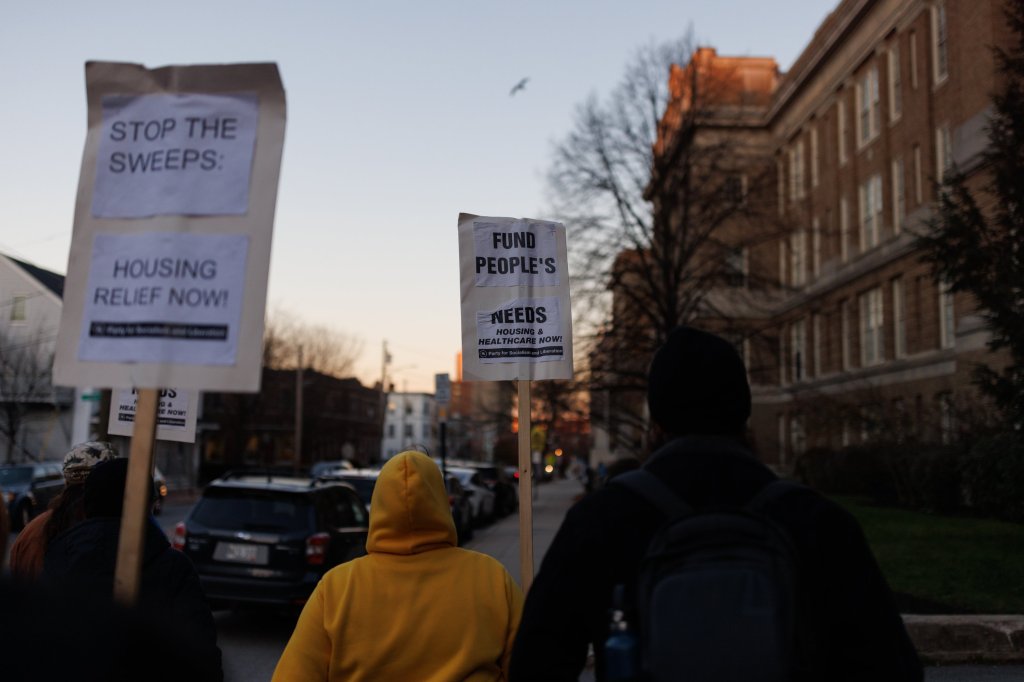


Success. Please wait for the page to reload. If the page does not reload within 5 seconds, please refresh the page.
Enter your email and password to access comments.
Hi, to comment on stories you must . This profile is in addition to your subscription and website login.
Already have a commenting profile? .
Invalid username/password.
Please check your email to confirm and complete your registration.
Only subscribers are eligible to post comments. Please subscribe or login first for digital access. Here’s why.
Use the form below to reset your password. When you've submitted your account email, we will send an email with a reset code.